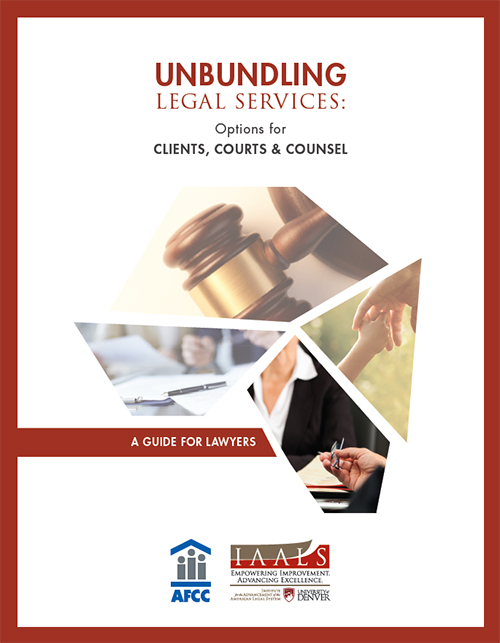Unbundling Legal Services: A Guide for Lawyers
The use of unbundled legal services is growing rapidly. An increasing number of jurisdictions explicitly allow unbundling and a growing number of attorneys are offering the service. Yet many attorneys remain unaware of its availability. As this method of legal services delivery expands, courts, commentators, and bar associations have created numerous excellent resources on the topic, including readily available websites, webinars, training manuals, power points, and articles.
This guide was compiled by IAALS, in coordination with the Association of Family and Conciliation Courts (AFCC), and amasses helpful resources into an easily accessible Frequently Asked Questions format, centered on the fundamentals of unbundled legal services.
How can we help? Consulting Inquiries:
iaals@du.edu

